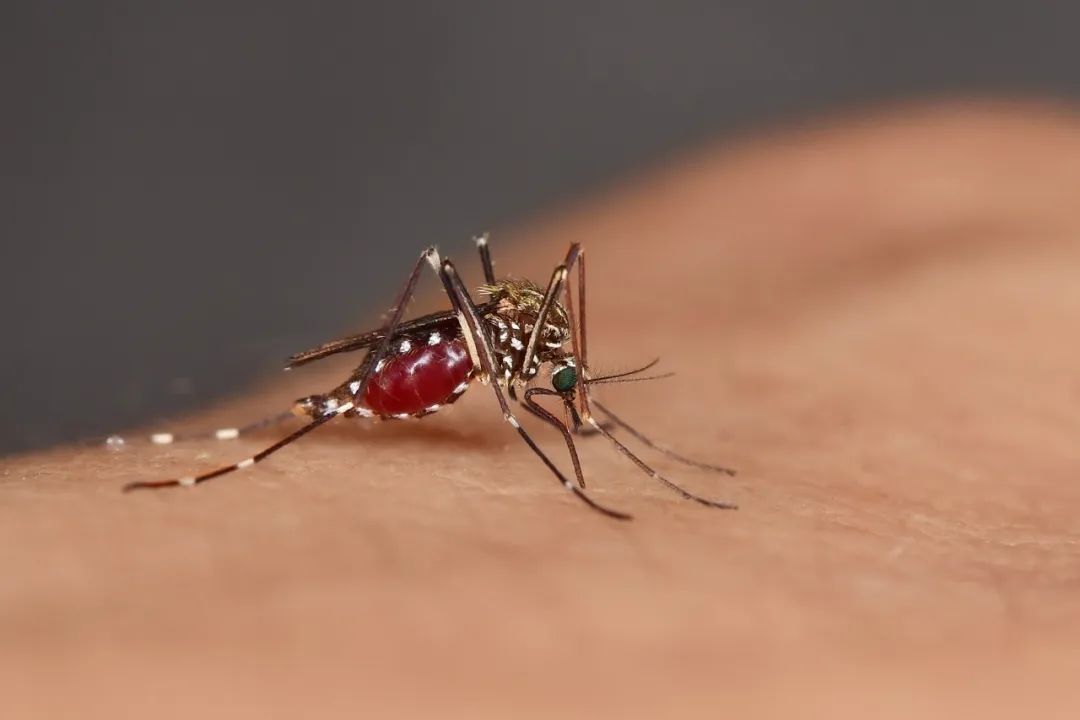These viruses alter a host’s skin microbiota to produce a mosquito-attracting molecule. A vitamin A supplement can reverse the effect.
As the virus behind the COVID-19 pandemic has proven, pathogens are adept at doing what they can to replicate and spread. Scientists have now discovered a new ruse employed by the viruses responsible for dengue fever and Zika fever – when they infect people, they make them smell more appetizing to hungry mosquitoes, which makes infected individuals more likely to be targeted.

Up to 70% of Aedes mosquites were found to prefer to feed on mice infected with dengue and Zika viruses.
Mosquitoes are attracted to the change in smell, says Gong Cheng, a microbiologist at Tsinghua University in China, and co-author of a new paper published in the journal Cell1.
The good news, however, is that the effect can be negated with a dose of a Vitamin A derivative.
Researchers have known for decades that people who are ill can give off body odours that differ from those of healthy individuals, because certain types of pathogens, such as malaria, change a host’s microbiota, prompting bacteria on the skin to release unique molecules. But whether Zika and dengue —mosquito-borne diseases that infect up to 400 million people annually — had similar odour-altering capabilities to the malaria pathogen has remained a mystery until now.
To investigate, Cheng and his colleagues at several Chinese labs placed Zika-infected and healthy mice into separate enclosures. When they piped air from each into a cage filled with mosquitoes, they found that 65–70% preferred to feed on the Zika-infected animals. Similar results were found with dengue-infected mice.
Smells like oranges?
A chemical analysis of the air revealed that a molecule called acetophenone, which has an odour redolent of oranges, was behind the newly appealing scent. Flavivirus-infected mice were found to produce approximately 10 times more acetophenone than healthy mice.
This happens in humans too, the researchers discovered. When dengue patients had their armpits swabbed, and the collected odours were dabbed on the backs of volunteers’ hands, the latter were more likely to attract mosquitoes than healthy participants who had not been wiped.
“Dengue patients release higher levels of acetophenone,” says Cheng. “Acetophenone acts as the potent odorant for mosquito attractiveness.”
The volatile molecule has many applications — as a fragrance in soaps and perfumes, a flavoring agent in foods and a solvent for plastics and resins. It is also found in some cheeses and bananas. Acetophenone is normally produced in small quantities by bacteria that reside on human and mouse skin. Antimicrobial peptides called resistin-like molecule-α (RELMα) usually keep their numbers in check. “However, Zika and dengue viruses largely suppress the expression of RELMα, favouring the proliferation of acetophenone-producing bacteria over others in the host skin,” says Cheng. This, in turn, alters the victim’s smell.
Feeding the sick mice with isotretinoin — a vitamin A derivative widely used to treat acne and other skin conditions — restored the antimicrobial peptide to near-normal levels and lowered the amount of acetophenone the animals exuded, making them less attractive to mosquitoes.

Gong Cheng (far right) is working on testing new ways counteract a mosquito-attracting skin smell on those infected with dengue and Zika.
The findings suggest “a novel avenue” to combat dengue and Zika outbreaks, says Cheng. But using vitamin A supplements as a treatment still has to be tested in humans — something he and his colleagues plan to dolater this year in Malysia, where dengue has been endemic for more than four decades.
Reference
1. Zhang, H., Zhu, Y., Liu, Z., Peng, Y., Peng, W et al. A volatile from the skin microbiota of flavivirus-infected hosts promotes mosquito attractiveness Cell 185, 2510–2522 doi: 10.1016/j.cell.2022.05.016.

